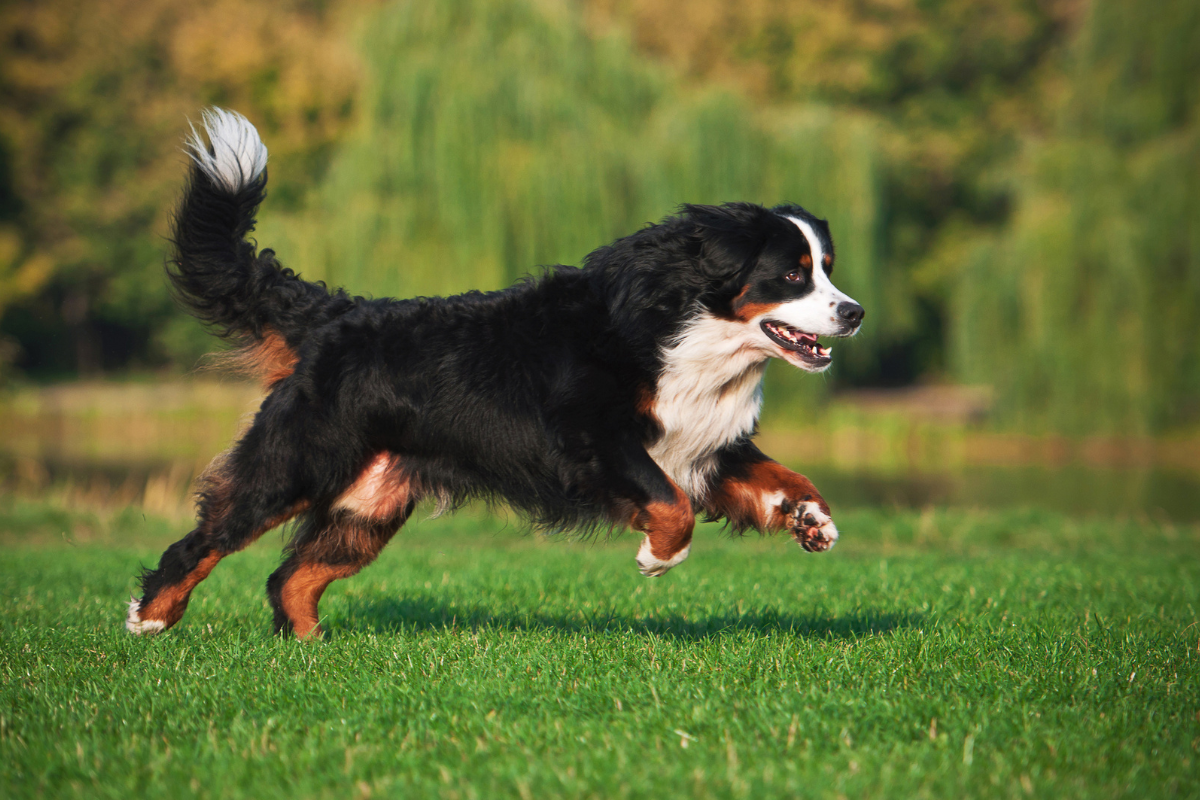All About the Bernese Mountain Dog
This post may contain affiliate links, meaning if you decide to make a purchase via my links, I may earn a small commission at no additional cost to you. You can read our full affiliate disclosure by clicking here.
The History of Bernese Mountain Dogs
Origins and Ancestry
The history of the Bernese Mountain Dog, often affectionately called the “Berner,” is a fascinating journey rooted in the scenic landscapes of Switzerland. To truly appreciate this magnificent breed, we must embark on a journey back in time to understand its ancestral beginnings.
1. Ancient Roots: The roots of the Bernese Mountain Dog can be traced back to the ancient Roman mastiff-type dogs. These dogs were brought to the Swiss Alps by the Romans, where they interbred with local Swiss dogs, resulting in the foundation of what we now know as the Bernese Mountain Dog.
2. Swiss Working Dogs: In the rural farming regions of Switzerland, these dogs evolved into versatile working companions. Berners were primarily utilized as farm dogs, tasked with herding cattle, pulling carts laden with milk, cheese, and other goods, and serving as faithful guardians of their owners’ homesteads.
3. The Swiss Alps: The breed’s name reflects its origins, as it hails from the Swiss canton of Bern, nestled in the breathtakingly beautiful Swiss Alps. These dogs were well-suited to the rugged terrain and demanding work of the region.
4. Crossbreeding and Preservation: Over the centuries, careful breeding practices ensured the preservation of the Bernese Mountain Dog’s distinct traits. They were often crossed with other Swiss mountain dog breeds, leading to the development of the Berner we know today.
5. Recognition and Standardization: The Bernese Mountain Dog’s breed standard was established in the late 19th century, with the Swiss Kennel Club officially recognizing the breed in 1907. The breed standard laid out the distinctive tri-colored coat, strong build, and gentle temperament that are now hallmarks of Berners.
6. International Recognition: In the 20th century, Bernese Mountain Dogs began to gain international recognition and popularity. They were introduced to the United States in the early 1900s and were officially recognized by the American Kennel Club (AKC) in 1937.
7. Modern Bernese Mountain Dogs: Today, Bernese Mountain Dogs are cherished around the world for their loving nature, striking appearance, and versatility as both working dogs and beloved family pets. They continue to carry the heritage of their Swiss ancestors into the modern era.
In summary, the Bernese Mountain Dog’s history is one of evolution and adaptation, from its ancient Roman roots to its role as a beloved companion in households across the globe. This breed’s journey through time is a testament to its enduring charm, unwavering loyalty, and remarkable resilience, making it a treasured part of the canine world.
Bernese Mountain Dog Characteristics
Physical Appearance
Bernese Mountain Dogs are known for their distinctive and captivating appearance, which combines strength and beauty in one impressive package.
1. Size and Build: These dogs are large and robust, with males typically standing between 24 to 28 inches (61 to 71 cm) at the shoulder, and females slightly smaller. They have a sturdy, well-proportioned build that exudes strength.
2. Coat: One of the most striking features of Berners is their lush, tri-colored coat. It consists of a jet-black base with rich rust and white markings. The coat is long, thick, and glossy, designed to provide insulation in the Alpine climate they originated from.
3. Markings: Bernese Mountain Dogs typically have distinctive white markings on their chest, face, paws, and the tip of their tail. A symmetrical white blaze running up the face is a hallmark of the breed.
4. Expression: Their eyes are dark brown and expressive, exuding warmth and intelligence. Their triangular ears are medium-sized and hang close to their head.
Personality Traits
Beyond their stunning appearance, Bernese Mountain Dogs are known for their exceptional personality traits that make them outstanding companions.
1. Gentle and Affectionate: Berners are renowned for their gentle and affectionate nature. They form deep bonds with their human family members and are often described as “gentle giants.” They are particularly patient and loving with children.
2. Loyal and Protective: These dogs are fiercely loyal to their families and serve as excellent watchdogs. They will alert their owners to any potential threats with a bark, although their friendly disposition means they are more likely to make friends than foes.
3. Easygoing and Calm: Despite their size, Bernese Mountain Dogs tend to have a calm and easygoing demeanor. They are content to lounge around the house but are always ready for a romp in the yard or a walk in the park.
4. Intelligent and Eager to Please: Berners are intelligent dogs that respond well to training. They have a strong desire to please their owners, which makes them trainable, although they can be a bit stubborn at times.
5. Social Butterflies: These dogs enjoy socializing with other dogs and people. They thrive in a family setting and do best when they are part of the household’s daily activities.
6. Work Ethic: Historically bred as working dogs, Bernese Mountain Dogs have a strong work ethic. They are up for tasks and enjoy being given responsibilities, whether it’s herding or simply carrying a backpack on hikes.
Health and Common Issues
While Bernese Mountain Dogs are beloved for their wonderful temperament and striking appearance, they are unfortunately prone to certain health issues that prospective owners should be aware of. These health concerns include:
1. Hip Dysplasia: This hereditary condition occurs when the hip joint doesn’t develop properly, leading to arthritis and pain. It’s common in large breeds like Berners, and responsible breeding practices aim to reduce its prevalence.
2. Elbow Dysplasia: Similar to hip dysplasia, elbow dysplasia involves abnormal development of the elbow joint. It can cause lameness and discomfort.
3. Cancer: Bernese Mountain Dogs are unfortunately susceptible to various forms of cancer, including histiocytic sarcoma, which is particularly prevalent in the breed. Early detection and regular veterinary check-ups are crucial in managing cancer risks.
4. Bloat (Gastric Torsion): This life-threatening condition can affect large, deep-chested breeds like Berners. It involves the stomach twisting, trapping gas, and causing severe pain. Immediate medical attention is required if bloat is suspected. Learn more about Bloat here
5. Heart Issues: Some Bernese Mountain Dogs may develop heart conditions, such as mitral valve disease or cardiomyopathy. Regular cardiac exams are recommended for early detection.
6. Progressive Retinal Atrophy (PRA): PRA is a genetic eye disorder that can lead to blindness. Responsible breeders screen for PRA to reduce its incidence in the breed.
7. Epilepsy: While not as common as some other issues, Bernese Mountain Dogs can be affected by epilepsy, a neurological condition that causes seizures.
8. Panosteitis: Often referred to as “growing pains,” this condition affects young dogs and can cause intermittent lameness and discomfort.
9. Von Willebrand’s Disease: This is a genetic bleeding disorder that affects blood clotting. Responsible breeding helps reduce the risk of this condition.
10. Joint Issues: Due to their large size, Bernese Mountain Dogs can experience joint problems such as arthritis as they age. Weight management and joint supplements can help mitigate these issues.
It’s crucial for Bernese Mountain Dog owners to work closely with a veterinarian who is familiar with the breed’s specific health concerns. Regular check-ups, a balanced diet, appropriate exercise, and maintaining a healthy weight can all contribute to a longer and healthier life for these wonderful dogs.
Remember that not all Berners will experience these health issues, and responsible breeding practices aim to reduce the prevalence of hereditary conditions. Prospective owners should choose breeders who prioritize the health and well-being of their dogs and conduct genetic testing to minimize the risk of inherited diseases.
Now, let’s discuss the pros and cons of owning a Bernese Mountain Dog:
Pros and Cons of Owning a Bernese Mountain Dog
Pros of Owning a Bernese Mountain Dog
- Loving and Gentle: Berners are known for their sweet and affectionate nature. They make excellent family pets and are especially gentle with children.
- Loyal Companionship: These dogs are highly loyal and thrive on being part of a close-knit family. They will form strong bonds with their owners.
- Striking Appearance: With their tri-colored coat and regal presence, Bernese Mountain Dogs are sure to turn heads and attract attention.
- Versatile Workers: Historically, they were bred for various tasks, from herding cattle to pulling carts. This versatility translates into adaptability in various living situations.
- Moderate Exercise Needs: While they are a large breed, Berners do not require excessive exercise, making them suitable for both active and more laid-back households.
Cons of Owning a Bernese Mountain Dog
- Size and Space: Bernese Mountain Dogs are large dogs, which means they need space to move around comfortably. They may not be the best choice for small apartments.
- Grooming Demands: Their beautiful coat requires regular grooming, and they are known to shed quite a bit, especially during seasonal changes.
- Health Concerns: Unfortunately, Berners are prone to certain health issues, including hip dysplasia, cancer, and bloat. Vet bills can be costly.
- Short Lifespan: On average, Bernese Mountain Dogs have a shorter lifespan compared to smaller breeds. This can be emotionally challenging for their owners.
- Heavy Shedding: Their double coat sheds year-round, which may not be suitable for allergy sufferers or those who prefer a low-maintenance grooming routine.
Let’s dive deeper into the exercise and training needs of Bernese Mountain Dogs to provide a comprehensive understanding of how to keep them happy and well-behaved.
Exercise and Training
Exercise Needs:
- Moderate Activity: Despite their large size, Berners do not have extremely high exercise requirements. However, they do need daily activity to keep them happy and prevent obesity. Aim for at least 30 to 60 minutes of exercise each day. This can include walks, playtime in a fenced yard, or interactive games.
- Enjoy the Outdoors: Bernese Mountain Dogs often thrive in outdoor settings. They love hiking, walking in the snow, and participating in outdoor activities with their families. Their thick coat helps them handle cooler temperatures.
- Watch for Overexertion: Be mindful not to overexert your Berner, especially in hot weather. They are sensitive to heat, so provide plenty of water and shade during outdoor play.
Bernese Mountain Dogs are known for their loving nature, but they also have specific exercise and training requirements to ensure they remain well-behaved and healthy.
How to train
Training Tips
- Early Socialization: Begin socializing your Bernese Mountain Dog as a puppy. Expose them to various people, animals, and environments to ensure they grow up to be well-adjusted and confident adults.
- Positive Reinforcement: These dogs respond well to positive reinforcement training methods. Use treats, praise, and rewards to motivate and encourage good behavior.
- Consistency is Key: Be consistent with your training routines and expectations. Berners can be stubborn at times, but patient and consistent training will yield positive results.
- Gentle Handling: Given their sensitive and gentle nature, avoid harsh training methods or punishment. Positive and gentle training techniques work best for this breed.
- Obedience Training: Basic obedience training is essential for Bernese Mountain Dogs. Teaching commands like sit, stay, and recall (come when called) helps ensure their safety and your control in various situations.
- Leash Training: Due to their size and strength, leash training is vital. Teach your Berner to walk politely on a leash to prevent them from pulling you during walks.
- Mental Stimulation: These dogs are intelligent and benefit from mental stimulation. Puzzle toys, interactive games, and obedience training sessions can keep their minds engaged.
- Patience with Puppies: Be patient during their puppy phase, which can involve some chewing and digging. Provide appropriate outlets for their energy and behavior.
For a Great Book for All Bernese Mountain Dog Owners click HERE
The Bernese Mountain Dogs are eager to please, and training should be a positive and enjoyable experience for both you and your dog. Early and consistent training will help ensure your Berner grows into a well-mannered and well-adjusted companion.







